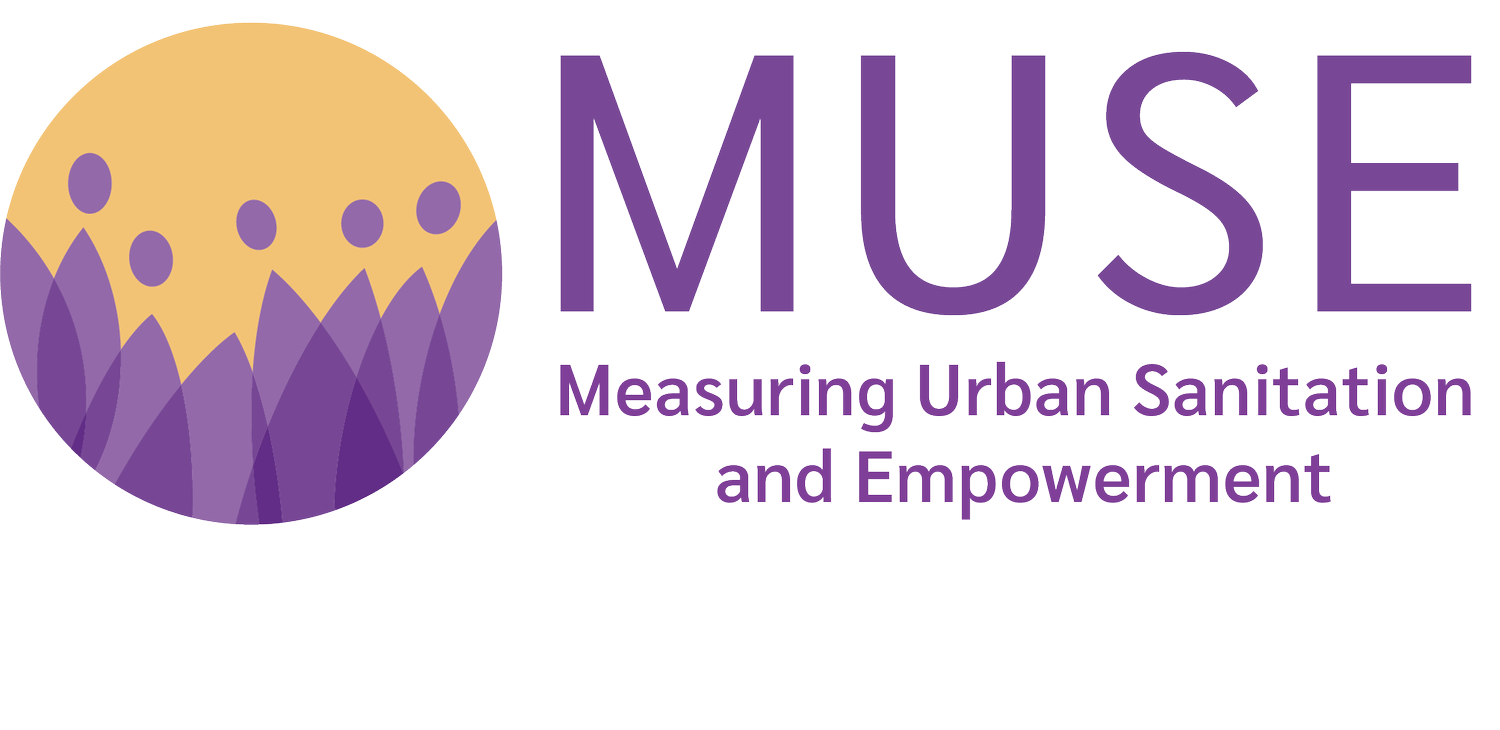
About MUSE
The MUSE project is developing and validating a portfolio of scales and indices to measure women’s empowerment in the context of urban sanitation.
MUSE operationalizes the empowerment definition and framework used by Bill and Melinda Gates Foundation, which underscores power transformation and self-determination of women and girls.
“The expansion of choice and strengthening of voice through the transformation of power relations, so women and girls have more control over their lives and future.”
Included within this concept of empowerment are three domains — agency, resources, and institutional structures — which feed into and influence one another. MUSE operationalizes the empowerment definition and framework developed by van Eerdewijk et al (2017) and adopted by the Bill & Melinda Gates Foundation. Based on the findings from an extensive literature review, the framework was updated to be specific to water, sanitation, and hygiene. The MUSE empowerment framework includes the following sub-domains: bodily integrity, health, safety, privacy, critical consciousness, financial and productive assets, time, social capital, knowledge and skills, decision-making, leadership, collective action, freedom of movement, norms, relations, and laws and policies. The sanitation-specific definitions for these subdomains are available here: Table of Definitions
Table of Definitions
Adapted from Sinharoy SS, Conrad A, Patrick M, et al. Protocol for development and validation of instruments to measure women’s empowerment in urban sanitation across countries in South Asia and Sub-Saharan Africa: the Agency, Resources and Institutional Structures for Sanitationrelated Empowerment (ARISE) scales. BMJ Open 2022;12:e053104. doi:10.1136/ bmjopen-2021-053104.
Addressing The Gap
Within the water, sanitation, and hygiene (WASH) sector, the role of women and girls in household WASH provision is well documented. However, there is limited data on how and to what extent WASH conditions, interventions, and policies impact women’s empowerment, or the extent to which women’s empowerment impacts WASH conditions. Further, no validated, WASH-specific measures exist to assess empowerment.
Our team at Emory University sought to address this gap by creating and validating a portfolio of scales and indices to measure women’s sanitation-related empowerment. Assessing sanitation-related empowerment broadly, or by specific domains and subdomains, will enable stakeholders to understand and measure women’s empowerment related to sanitation, and what programs, initiatives, and policies may be needed to make change.
Project Phases
Phase I
Completed October 2019, involved: cognitive interviews in two neighborhoods/settlements in two Citywide Inclusive Sanitation (CWIS) cities: Kampala, Uganda and Tiruchirappalli, India.
Phase II
Completed February 2020, involved: a second round of cognitive interviews in Kampala and Tiruchirappalli and implementation of the survey with approximately 1,000 women in each city.
Phase III
Completed June 2022, involved: deployment of the refined tools across 8 CWIS cities in Bangladesh, India, Senegal, Uganda, and Zambia to measure each domain and subdomain of empowerment.
Learn More
We are a small research team at Emory University with expertise in WASH, gender equality and social inclusion (GESI), and more.
We validated our survey tool in urban contexts across Africa and South Asia.
Our survey toolbox, including the survey itself and additional guidance documents, is accessible on our site.



